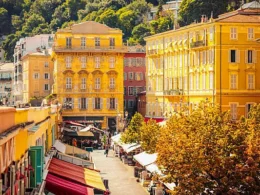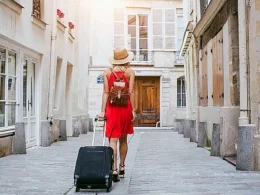‘Wine Tasting in France: A Beginner’s Guide’ offers an insightful exploration into the world of French wine, providing newcomers with a foundational understanding of the country’s renowned wine culture. This guide delves into the intricacies of French wine regions, the art of wine tasting, varietals, terroir, and wine etiquette.
With a focus on imparting essential knowledge, this resource is designed to equip beginners with the confidence and understanding necessary to appreciate and navigate the diverse world of French wines. Whether preparing for a trip to the vineyards of France or simply seeking to expand one’s wine knowledge, this guide serves as a valuable starting point for those embarking on their wine tasting journey.
Understanding French Wine Regions
When delving into the world of French wines, it is essential to understand the various wine regions and the unique characteristics they bring to the wines.
Bordeaux and Burgundy are two of the most renowned wine regions in France, each offering distinct qualities. Bordeaux is famous for its blended red wines, often dominated by Cabernet Sauvignon or Merlot, while Burgundy is celebrated for its Pinot Noir and Chardonnay, producing more delicate and nuanced wines.
On the other hand, Champagne and Rhône represent contrasting styles. Champagne is celebrated for its sparkling wines, known for their elegance and finesse, while the Rhône valley produces robust reds and aromatic whites, showcasing the diversity of French winemaking.
Understanding these regional disparities is crucial for any wine enthusiast looking to explore the world of French wines.
Mastering the Art of Wine Tasting
Mastering the Art of Wine Tasting requires not only sensory awareness but also an understanding of the terminology and techniques used in evaluating and appreciating various wine characteristics. To truly develop a discerning palate and appreciate the complexity of wines, one must focus on the following:
- Sensory Experience: Engage all your senses when tasting wine. Observe the color and clarity, smell the aromas, and pay attention to the taste and mouthfeel.
- Terminology: Familiarize yourself with wine tasting vocabulary. Terms like tannin, acidity, and body are crucial in describing and understanding the nuances of wine.
- Techniques: Learn professional tasting techniques such as the systematic approach to tasting (SAT) to ensure a thorough and consistent evaluation of wines.
Mastering these aspects will enhance your wine tasting experience, allowing you to appreciate and evaluate wines more effectively.
Exploring Varietals and Terroir
To gain a deeper understanding of wine, one must delve into the exploration of varietals and terroir, allowing for an appreciation of the unique characteristics and origins of different wines.
Varietal characteristics refer to the specific qualities imparted by the grape variety, including aroma, flavor, and structure. Each grape variety has its own distinct profile, influenced by factors such as climate, soil composition, and winemaking techniques.
Terroir, on the other hand, encompasses the environmental factors that shape a wine, including soil, topography, and climate. The soil composition, in particular, plays a crucial role in defining the character of a wine. Different soils can imbue the grapes with varying mineral qualities and nutrients, ultimately affecting the taste and aroma of the resulting wine.
Exploring varietals and terroir is essential in comprehending the complexity and diversity of wines produced in France.
Navigating Wine Etiquette in France
Navigating wine etiquette in France involves understanding the cultural nuances and customary practices associated with wine consumption and social gatherings. French wine etiquette is an integral part of the country’s social fabric, and adhering to certain customs is essential when partaking in wine-related activities.
Here are three key aspects to consider:
- Pouring and Receiving Wine: When pouring wine, it is customary to hold the bottle at the base and not overfill the glass. Likewise, when receiving a pour, it’s polite to hold the glass at the base and make eye contact with the server.
- Wine Tasting Conduct: During wine tastings, it’s important to observe the color, swirl the wine gently, and take time to appreciate the aroma before sipping. Avoid gulping or downing the wine quickly.
- Dining Etiquette: In formal settings, wait for the host to offer a cheers before taking the first sip of wine. Additionally, it’s customary to keep your hands visible on the table during meals.
Frequently Asked Questions
What Are Some Common Mistakes Beginners Make When Trying to Identify Different Wine Flavors?
Common misconceptions about identifying wine flavors include relying solely on taste, neglecting the importance of aroma, and overlooking the impact of visual cues. Sensory training and tasting techniques can help beginners understand flavor profiles more accurately.
How Can I Best Store and Preserve the Leftover Wine After a Tasting Session?
To best store and preserve leftover wine after a tasting session, consider using vacuum sealers, inert gas systems, or transferring the wine to smaller bottles to minimize air exposure. Keep the wine in a cool, dark place to maintain its quality.
Are There Any Specific Cultural Customs or Traditions I Should Be Aware of When Visiting a Winery in France?
When visiting a winery in France, it is essential to respect French wine etiquette and cultural traditions. Familiarize yourself with wine tasting customs, avoid common wine identification mistakes, and consider unique tasting experiences, wine pairing tips, and regional wine and food.
Can You Recommend Any Lesser-Known Wine Regions in France That Are Worth Exploring for a Unique Tasting Experience?
When seeking hidden gems, French vineyards offer unique varietals and a deep connection to the land, known as terroir. Lesser-known regions like Jura, Savoie, and Corsica provide exceptional tasting experiences, showcasing the diversity of French wine culture.
What Are Some Tips for Pairing French Wines With Local Cuisine When Visiting Different Regions in France?
When visiting different regions in France, pairing suggestions for local cuisine with French wines are vital. Tasting etiquette and understanding the local wine options can enhance the experience. Additionally, exploring wine tour options can provide valuable insights into the regional wine culture.










